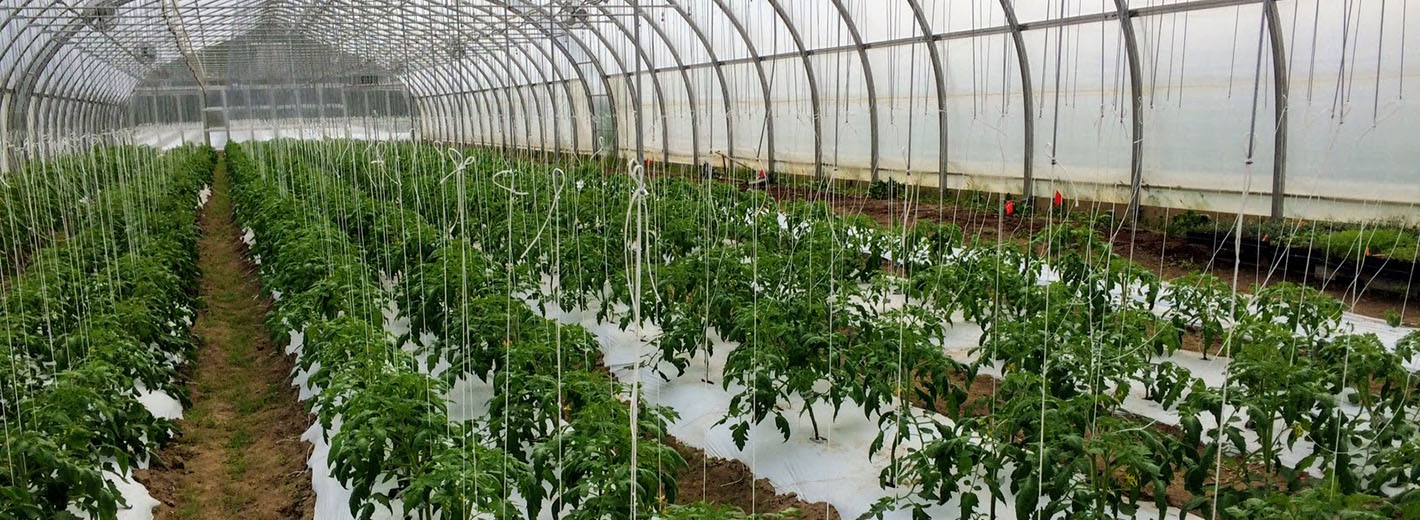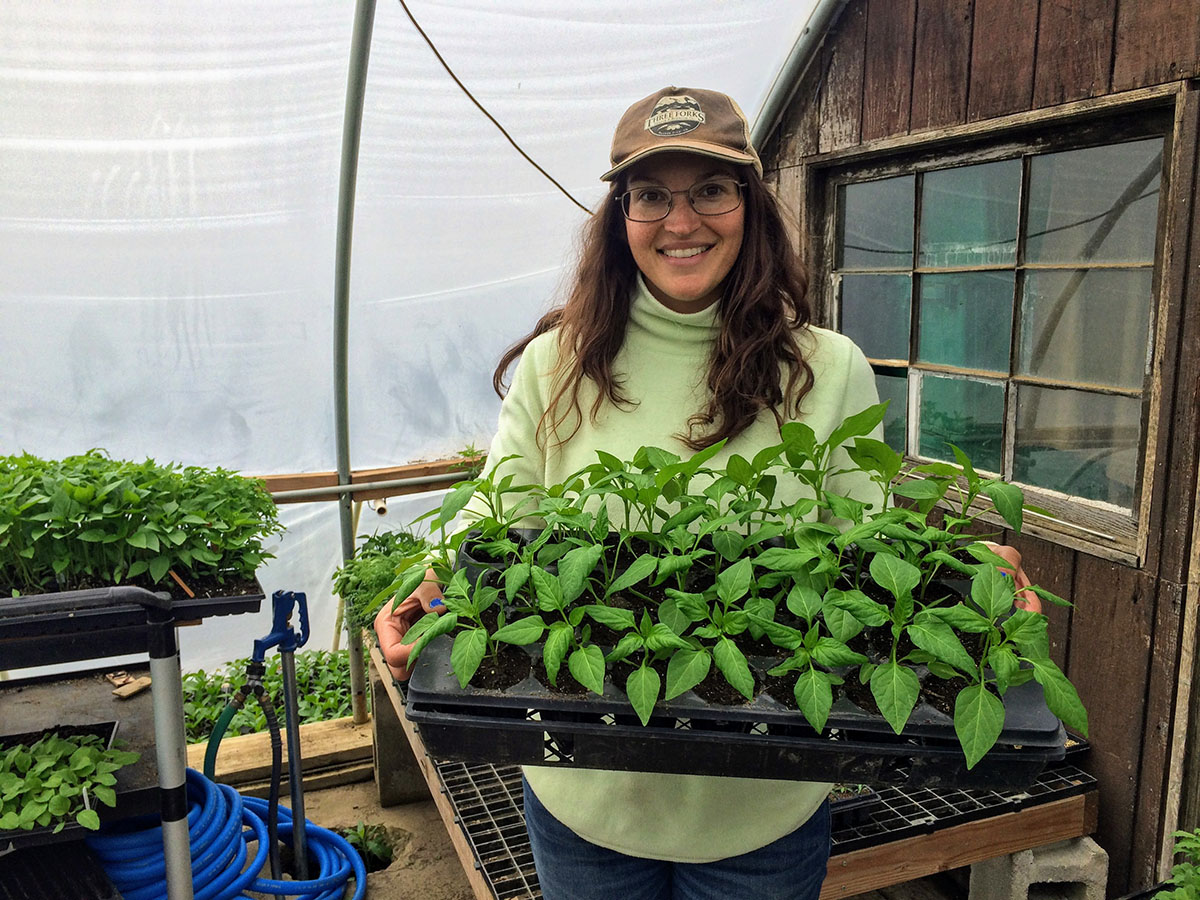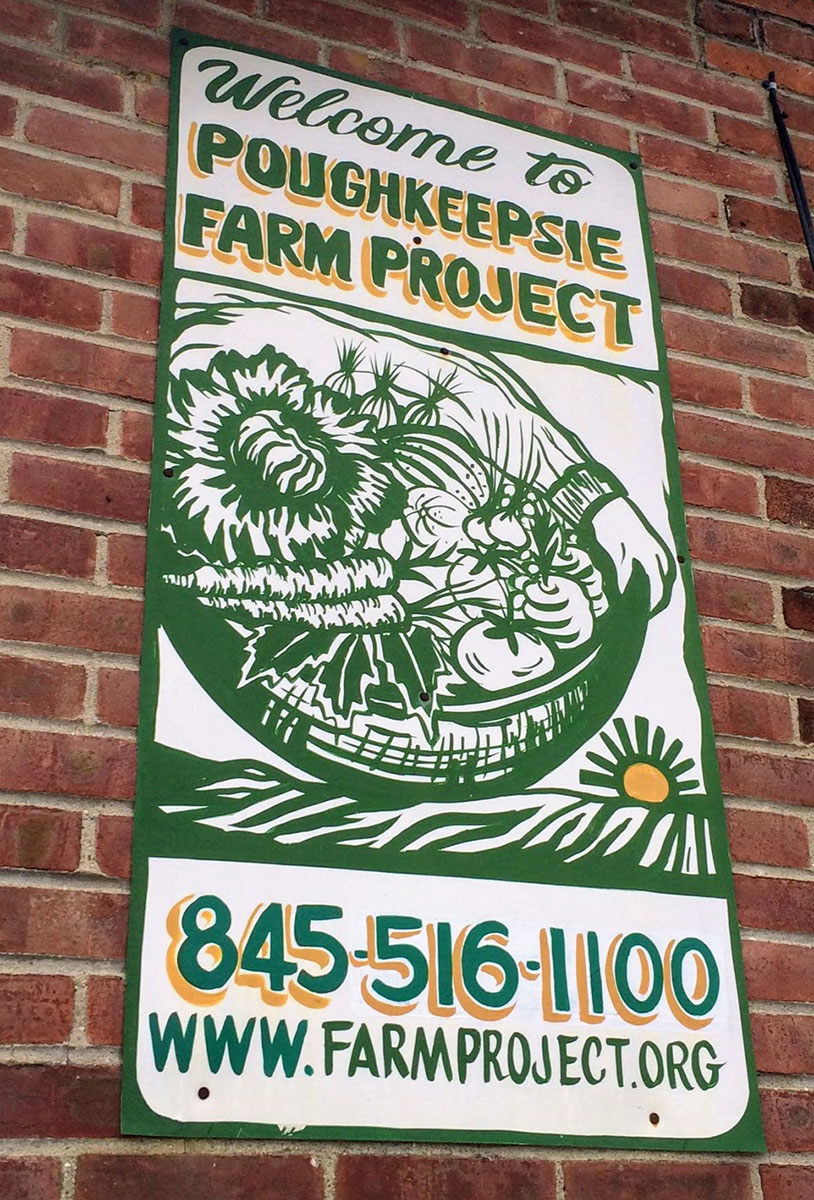
Vassar’s Community Farm Next Door
Up until the late 1950s, agriculture was a standard part of most college curriculums. Many rural colleges operated their own educational farms that prepared future farmers and fed their campuses. Over the decades, most of those large landholdings were transformed into arboretums and sports fields. But some colleges are plowing their acres once more to provide fresh, local food for their students. In the case of Vassar College in Poughkeepsie, NY, the college has taken this one step further by leasing 12 acres of former college farmland to a pioneering food nonprofit called the Poughkeepsie Farm Project.

Lauren Kaplan, farmer and wholesale coordinator at the Poughkeepsie Farm Project, showcases baby plants that might one day bear fruit for Vassar
The Poughkeepsie Farm Project (PFP) began in 1999 as a small nonprofit community farm with a commitment to education and food justice. The effort started on just three acres, with 15 CSA shareholders. Today, they have expanded to 12 acres, and more than 500 households participate in their CSA.
The Poughkeepsie Farm Project hopes to bridge the gap between hungry residents and local farms. (In Poughkeepsie, one in four households are considered food insecure by USDA standards, meaning they do not know where their next meal is coming from; the national average rate is one in six.) Twenty percent of PFP’s annual produce volume goes to local food pantries or members of their subsidized CSA program. The sponsored CSA shares alone serve more than 120 individuals annually. PFP recently received a grant from the USDA Hunger-Free Communities initiative to host forums on connecting food-insecure households with local foods.
PFP also recognizes that food and farming education is key to creating a just food system and addressing nutritional disparities. Their education team builds gardens in local schools and brings students of all ages to their site to learn about sustainable agriculture, seed saving, and healthy eating.
 Of course, PFP also works with nearby Vassar students, many of whom call PFP the “Vassar Farm” — which reflects the historical reality. Vassar students have the opportunity to work on the farm for credit or to participate in one of PFP’s agricultural and educational internships. Over the years, PFP has been an incubator for leaders in the sustainable food movement, and at least four Vassar/PFP alums now farm, while countless others have pursued careers in education and food systems development.
Of course, PFP also works with nearby Vassar students, many of whom call PFP the “Vassar Farm” — which reflects the historical reality. Vassar students have the opportunity to work on the farm for credit or to participate in one of PFP’s agricultural and educational internships. Over the years, PFP has been an incubator for leaders in the sustainable food movement, and at least four Vassar/PFP alums now farm, while countless others have pursued careers in education and food systems development.
In the fall of 2016, Vassar invested in two large hoop houses that have extended not just PFP’s growing season, but also Vassar students’ learning opportunities. According to then–PFP Executive Director Lee Anne Albritton, the farm should be able to produce more than 6,000 pounds of additional food — much of which will be sold to Bon Appétit. Though Vassar has always served some PFP produce on campus, the investment in these hoop houses and the switch to Bon Appétit’s committed-to-local chefs represent a new commitment to having the “Vassar Farm” feed students once again.